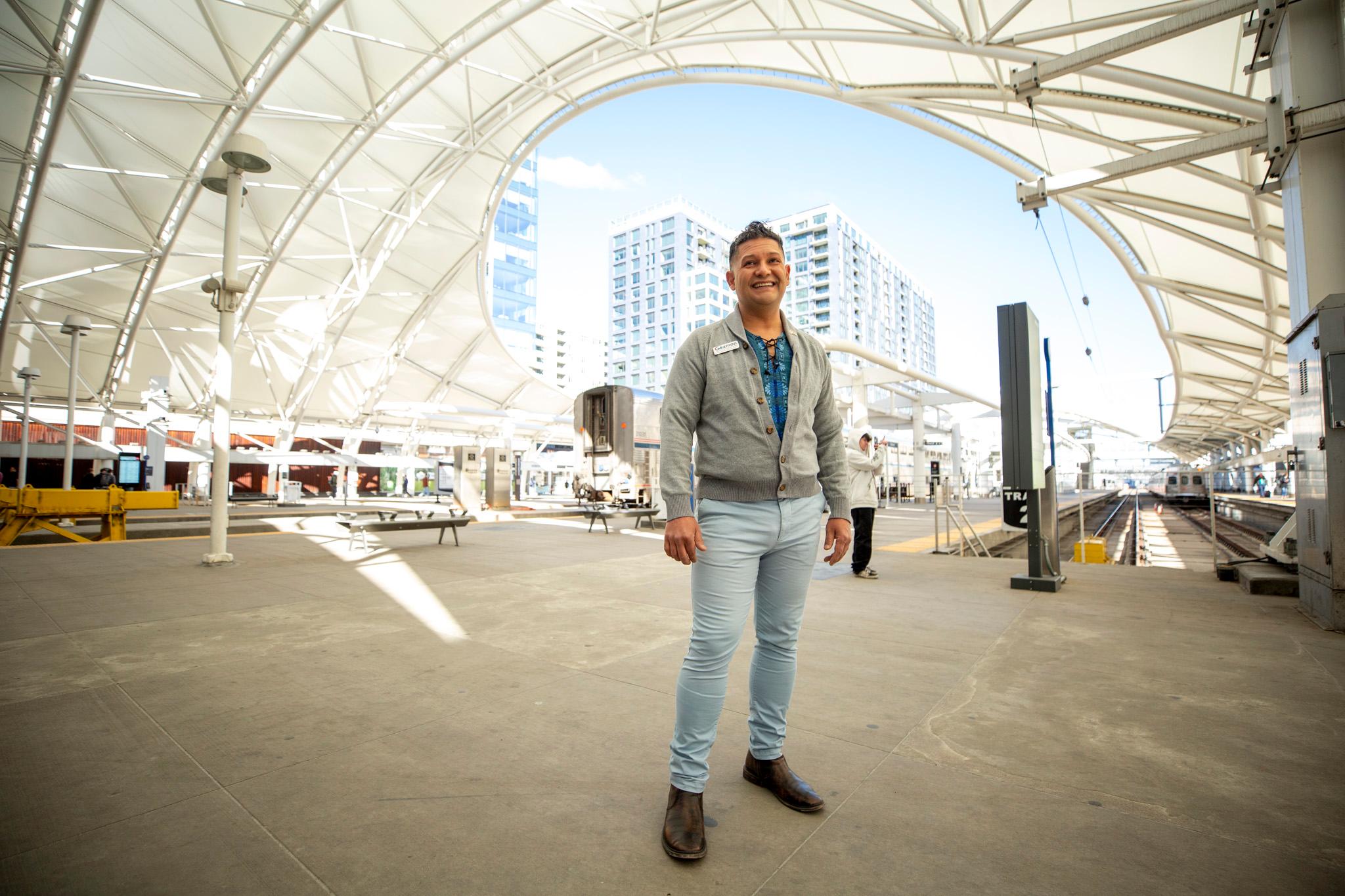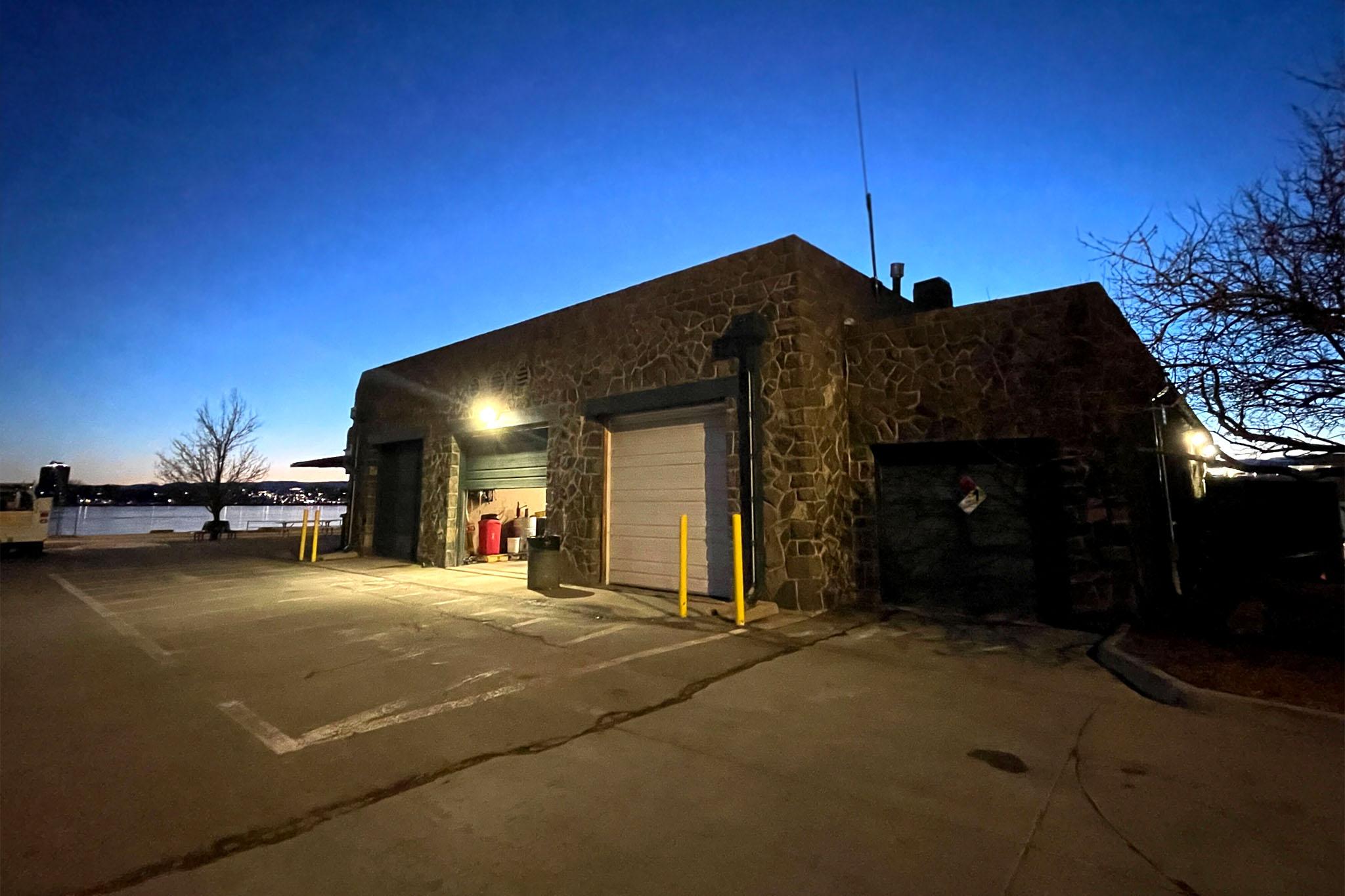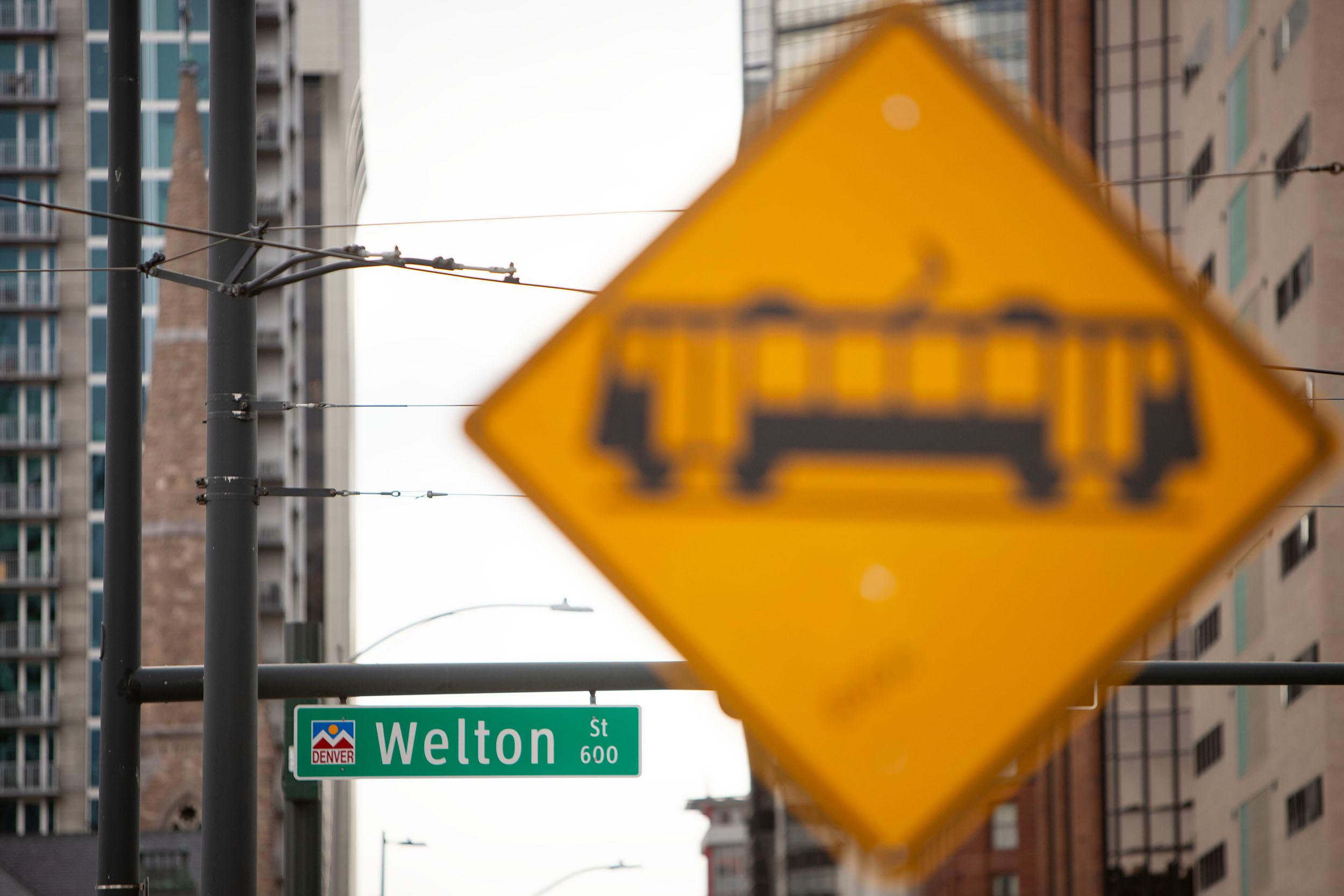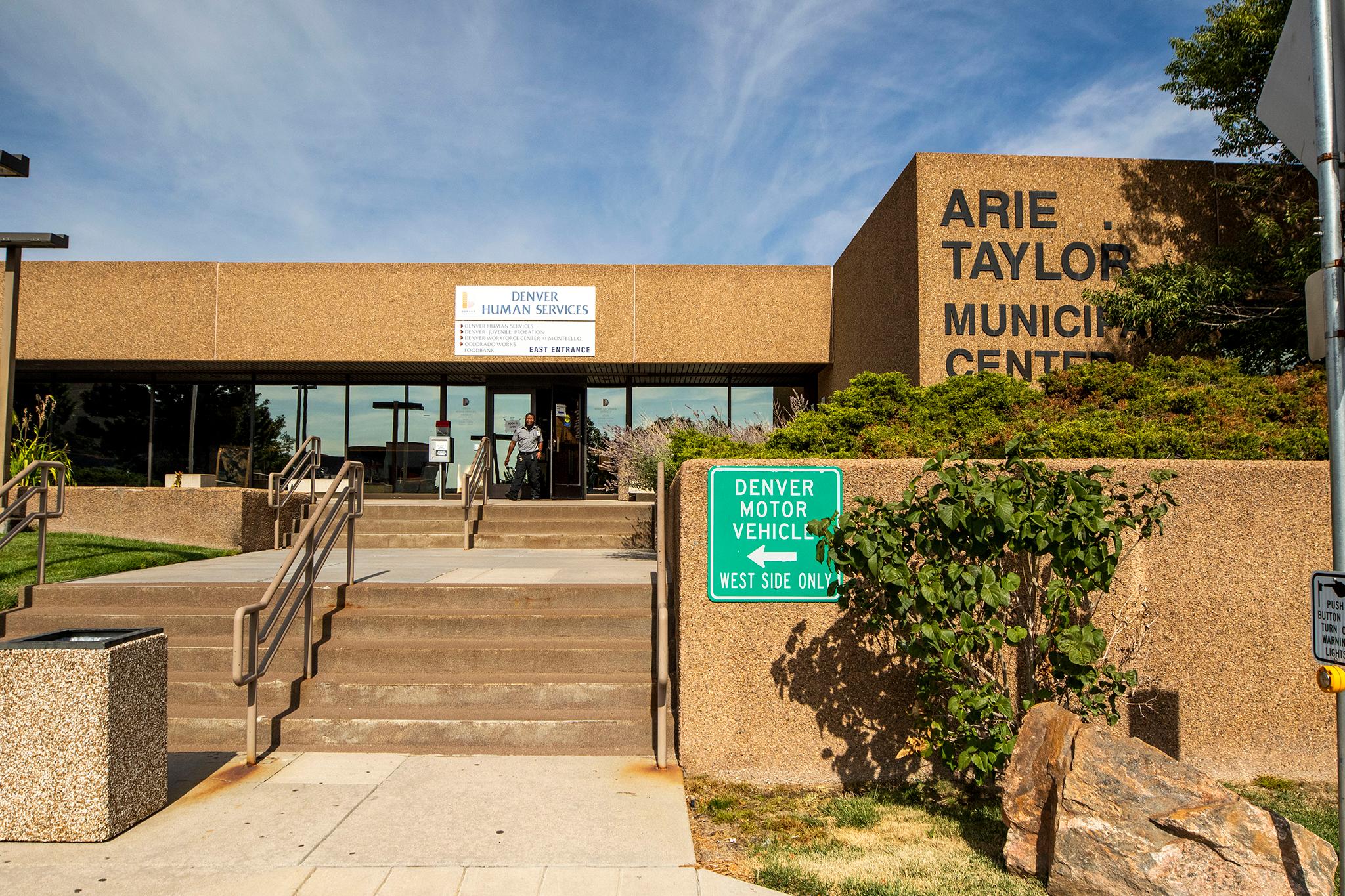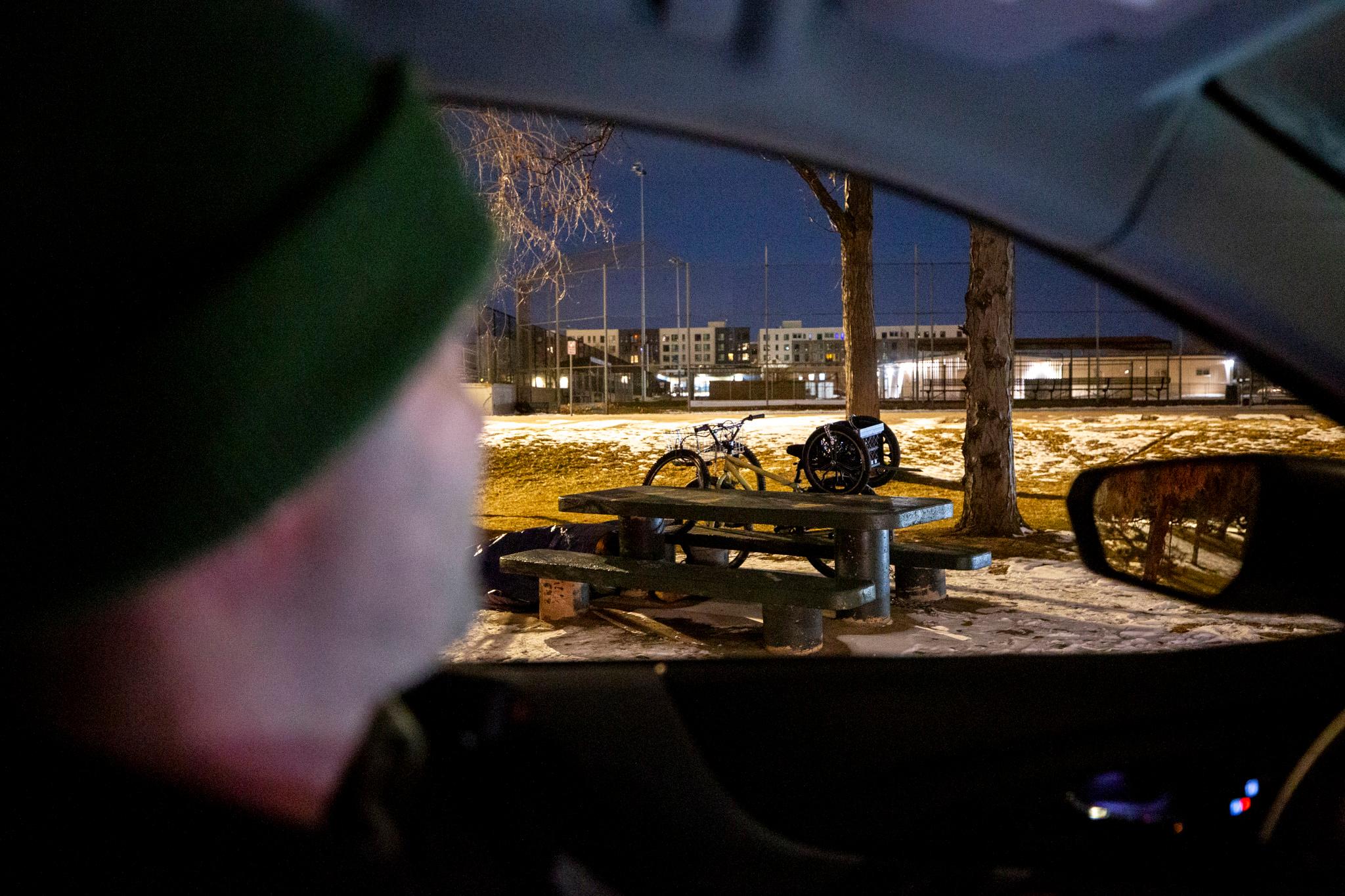When protesters surrounded a police precinct station in Aurora last summer, were organizers leading a First Amendment-protected protest, or did it cross a line into criminal rioting? That's the question a judge will weigh as he decides whether prosecutors can take their case against three participants to trial.
Whitney Lucero, Lillian House and Joel Northam, organizers with the Colorado branch of the Party for Socialism and Liberation, face three felony charges each, including attempted kidnapping and inciting a riot, as well as a handful of misdemeanor charges stemming from a protest in memory of Elijah McClain on July 3, 2020.
A preliminary hearing in the case wrapped up Monday afternoon. Judge Leroy Kirby plans to issue his ruling Thursday.
During the July 3rd demonstration, protesters erected barriers around the District One police station in Aurora and secured the building's doors with ropes and U-locks in an attempt to keep police officers from entering or leaving.
The crowd demanded the department immediately fire Nathan Woodyard and Randy Roedema, two of the officers who stopped the 23-year-old McClain as he was walking home in August 2019. Officers used carotid holds to restrain McClain and a paramedic injected him with ketamine. He later died at a hospital. An investigation commissioned by the Aurora City Council found officers mishandled the entire encounter.
"These killer cops are still on your force," House told now-Aurora Police Chief Vanessa Wilson in a cell phone call during the protest, which was broadcast over a loudspeaker to demonstrators. "We're not going in and we're not going out ... And neither are these pigs inside the building ... All you have to do is fire Woodyard and Roedema tonight."
In the cell phone call played during the preliminary hearing, Wilson told House that calls were coming in and police officers were unable to respond to them with people blocking the door.
Wilson said she didn't have the "power" to fire anyone that night.
"I know everyone is angry and I get it and I understand," Wilson said.
The crowd booed.
Prosecutors also questioned officer Matthew Alcorta, a member of the department's Emergency Response Team, who was inside during the protest. He described the crowd as "very agitated and angry" and said he saw people with helmets, gas masks, umbrellas, and clothing that looked "bulked up," presumably for protection.
"It tells me that this no longer looks to be peaceful," Alcorta said in response to a prosecutor's question. "Based on their wearing that gear, they're ready for something to go down."
Lawyers for Lucero, House and Northam argued that cops were unfairly targeting their clients because they were effective organizers. They said there were other crimes being committed all around during the protest and those people were not facing such serious charges.
"Did you ever see any of these three people move an object in front of this door?" defense attorney Amelia Power asked Detective Andrew Silberman, who is the main investigator on this case.
"No," Silberman replied.
"You never saw any of them putting objects in front of the door?" Power said.
"Correct," Silberman said.
The defense attorneys also pointed out that at least one officer left during the protest -- which they argued proves demonstrators weren't successfully blocking anyone from leaving -- and that the crowd didn't take any violent action toward the police. They also pressed Silberman on whether officers had non-lethal means of dispersing the crowd, if they had decided to leave the building.
Silberman said that they were under orders not to engage.
"Officers inside were scared that a breach was imminent and they were stuck in the middle with a Catch-22," he said. "There were items inside they didn't want protesters breaching and grabbing and yes, they had the command staff telling them not to ... engage."
Defense attorneys argued that the order was what kept officers inside, not the crowd, so the kidnapping charge is unfair.
"The officers inside, fully armed, could have left if they wanted to," said Adam Frank, the lawyer for Whitney Lucero.
Beyond arguing against the specific charges, attorneys for the protesters argued the entire prosecution is a violation of the First Amendment.
"This is the most offensive prosecution I have ever witnessed, and I have been doing this for a long time," said Frank. "Right now we are attempting to criminalize the most important speech our state has seen in decades."
The charges against Lucero, House and Northam are some of the most significant to come out of last summer's racial justice protests.



